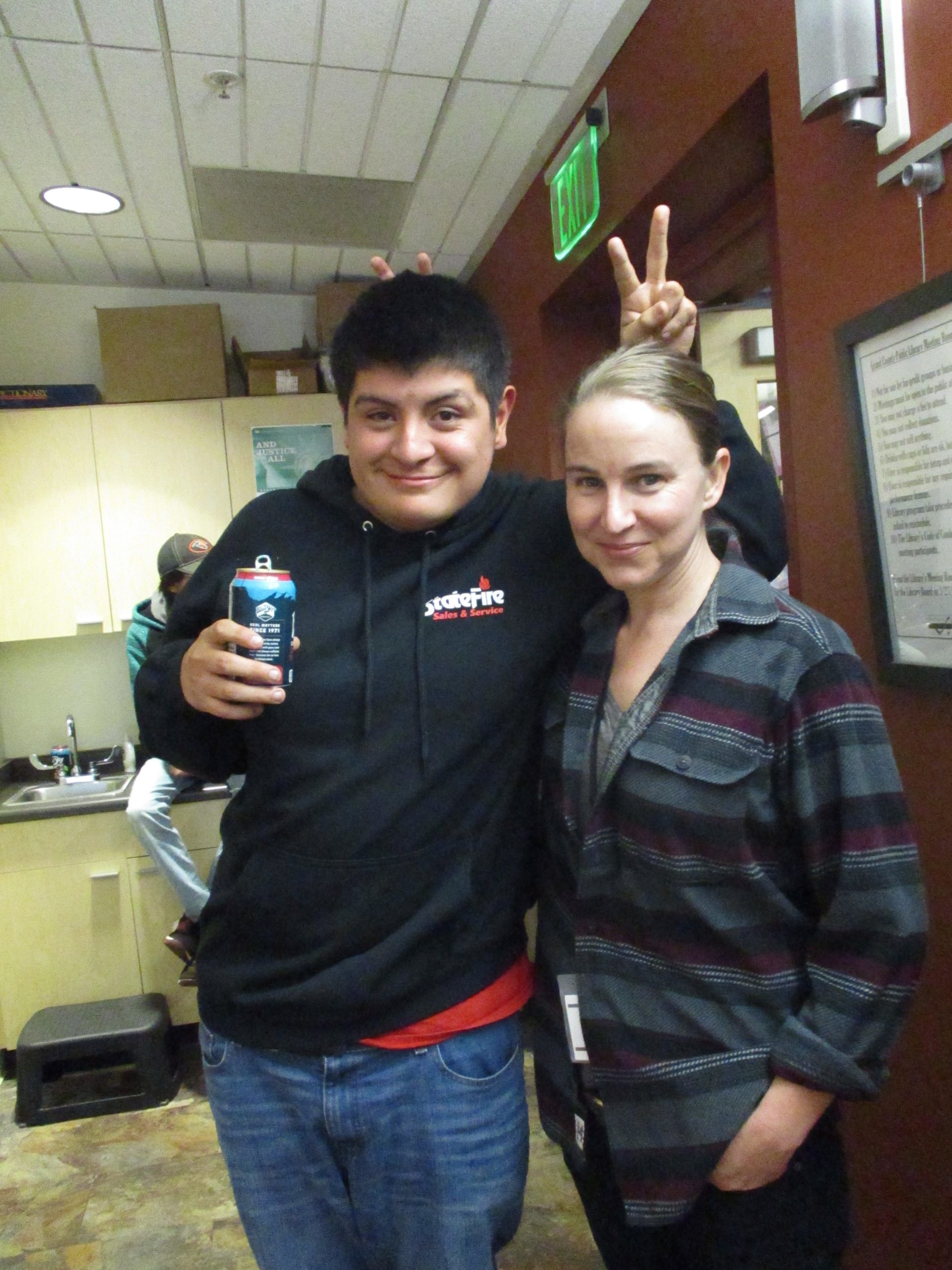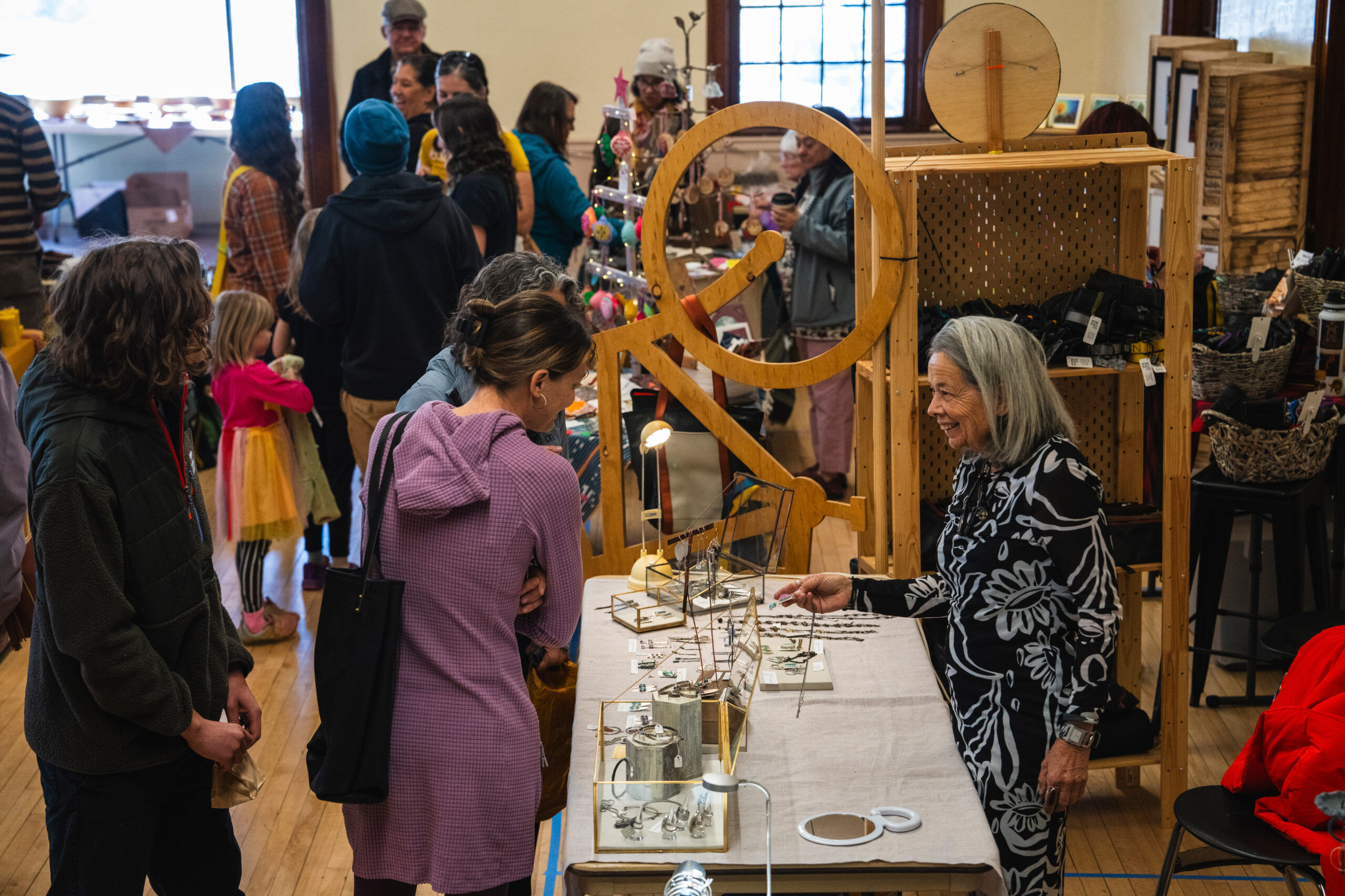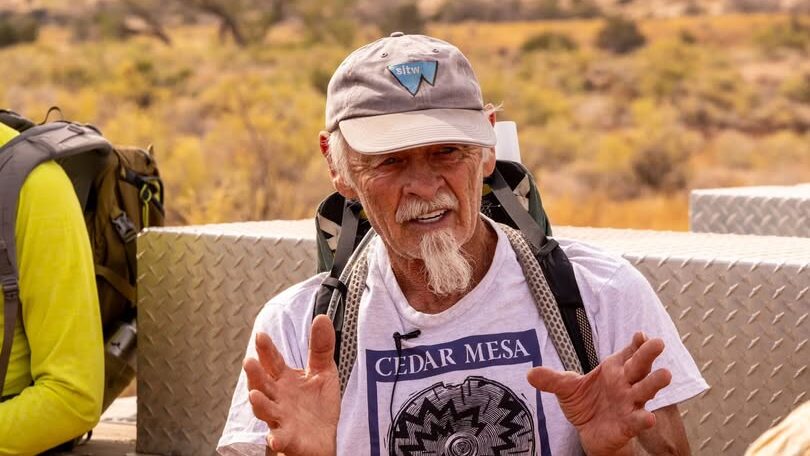Some information may be outdated.
Grand County Public Library wants to hear from Moab teens. Last Friday, the library hosted the first meeting of its Teen Ambassador Group, inviting kids ages 12-17 to brainstorm activities, books, games and events for the Teen Library Program.
Over a dozen kids chattered and gestured, feasting on pizza donated by Dominos.
The goal, says Teen/Tween Library Assistant Christina Williams, is to find out kids’ expectations and try to provide the kind of programming they want. The Teen Ambassador Group will meet the second Friday of every month at 5 p.m. to facilitate that with an open invitation to all kids within the teen/tween age range.
“I’m hoping to get group leaders that can help us go forth,” Williams said.“Whoever steps up and wants to take a larger role will have that opportunity.”
Already on offer are two upcoming programs: a virtual reality club in February and a coding club in the spring.
The virtual reality club is possible thanks to a grant received through the Utah State Library. Grand County Library was able to purchase two virtual reality headsets, an Oculus Go and an Oculus Quest, and will be able to purchase more equipment during a later phase of the grant.
Bryce Byrd, a young Moabite who attended the meeting, said the virtual reality program piqued his interest.
“I’ve been watching VR videos on Youtube for a long time,” he said. “When I saw the wireless headset came out, I’m like, ‘Oh, I don’t need a giant gaming computer.’”
“That’s what I’m excited about!” another teen chimed in.
A major point of discussion at Friday’s meeting was what kind of games or programs the kids want on the Oculus headsets. They requested various games including “Beat Saber,” a rhythm game, “Star Chart,” which allows for virtual exploration of the solar system, and “Job Simulator,” a VR video game.
The coding club that will start in the spring is in partnership with Prenda, a company that provides online coding courses aimed at kids.
“They’re offering a free online program,” said Williams. “Teens can go through different workouts and missions and complete the program at their own pace; it’s not necessarily a linear program and it touches base on all different kinds of programming languages and robotics.”
Williams said the coding club aligns with the interests of a lot of teens that are already coming to the library.
“We generally get, after school, ten to fifteen teens that come here quite often, kind of regulars,” she explained. “They’re very into video gaming and a lot of them are actually already starting to create some of their own games.”
Students can access the Prenda program from home if they have a computer and the internet.
Williams is also putting out feelers for a space that could be used as a library teen center.
“They’re definitely interested in a space that’s specifically for them, outside of the library but still using the resources that we have to offer,” she said of the teens she’s talked with.
“We’re trying to just get the word out into the community because we know space is really tight,” she said.
Finding space for a teen center will be a challenge, but in the meantime the library will remain a haven for those teens who have been ‘regulars.’
“The library is a safe space for teens to hang out after school, Saturdays, and during school breaks,” Williams said. The Teen Ambassador group creates another outlet for those youths. “The Ambassador program gives teens an opportunity to help create events and programming that meet their interests, as well as a positive experience to add to their resumes and/or school applications,” Williams said.
Appreciate the coverage? Help keep local news alive.
Chip in to support the Moab Sun News.





